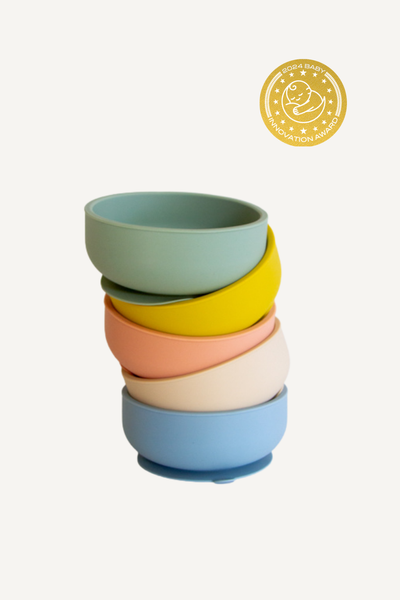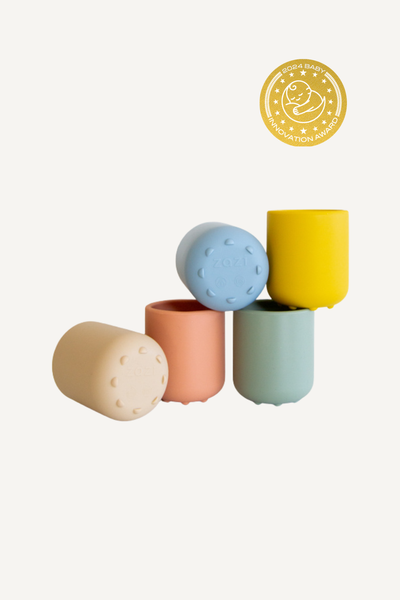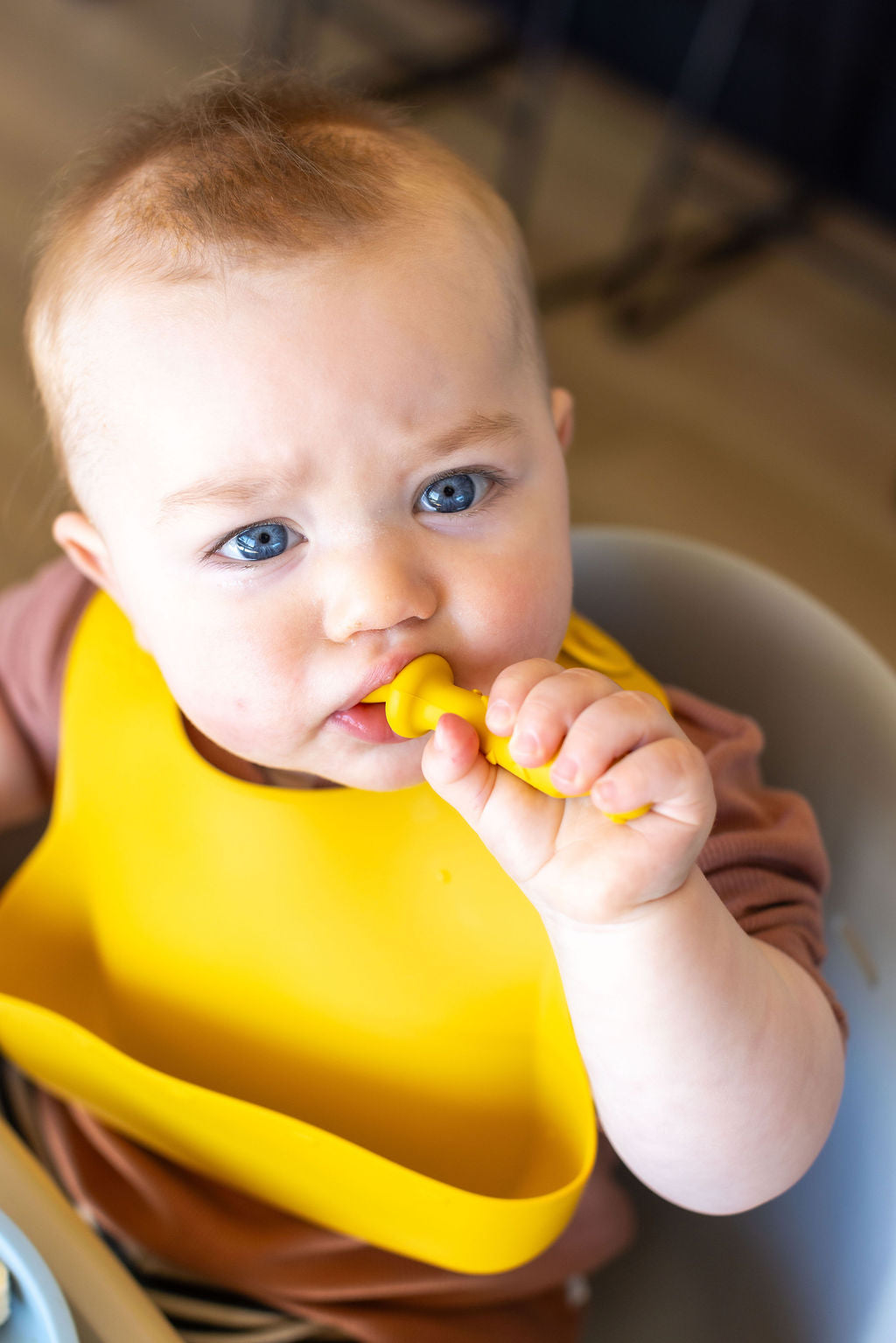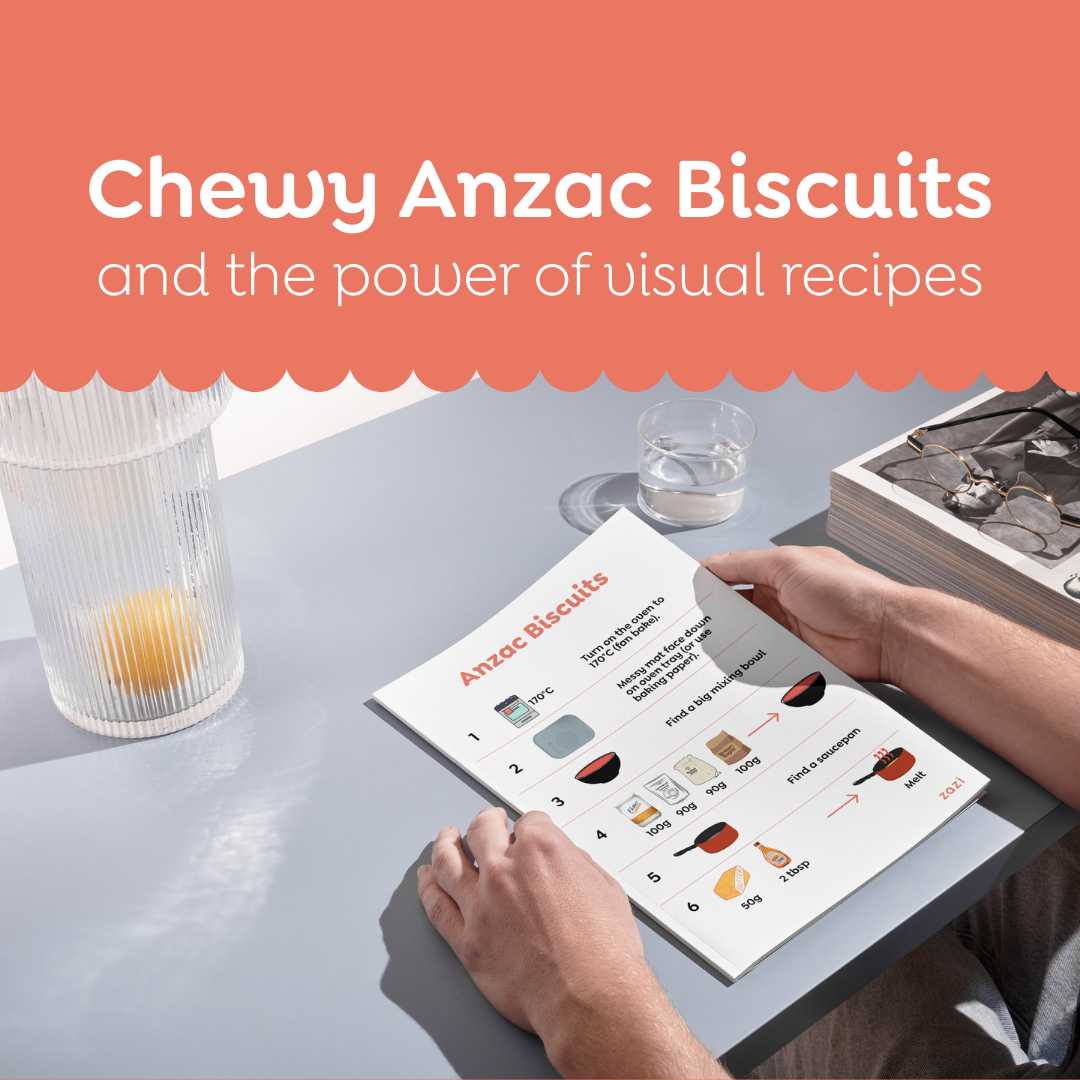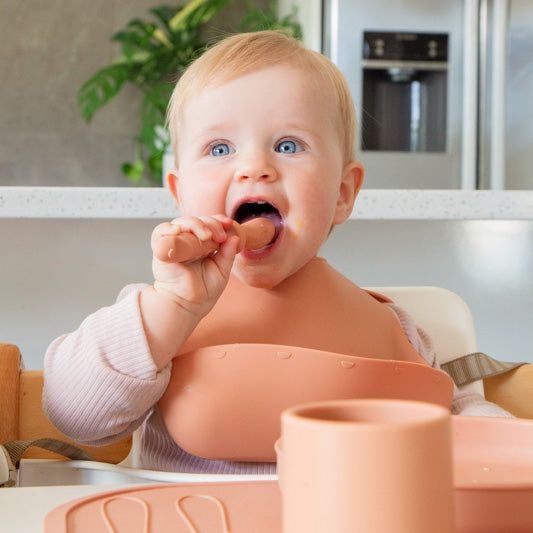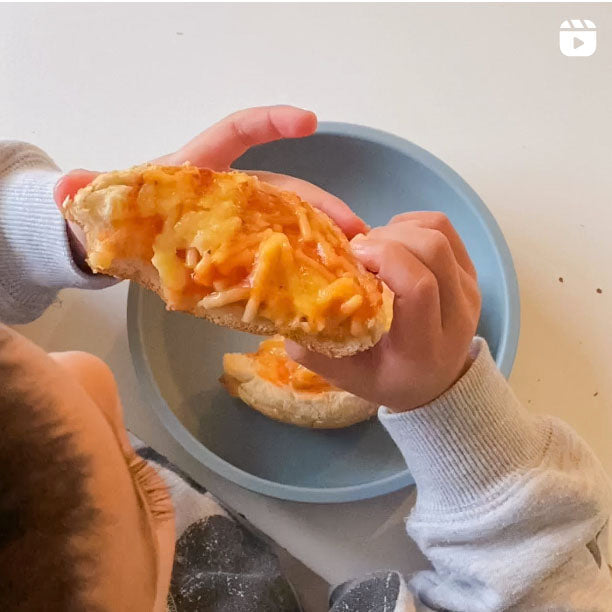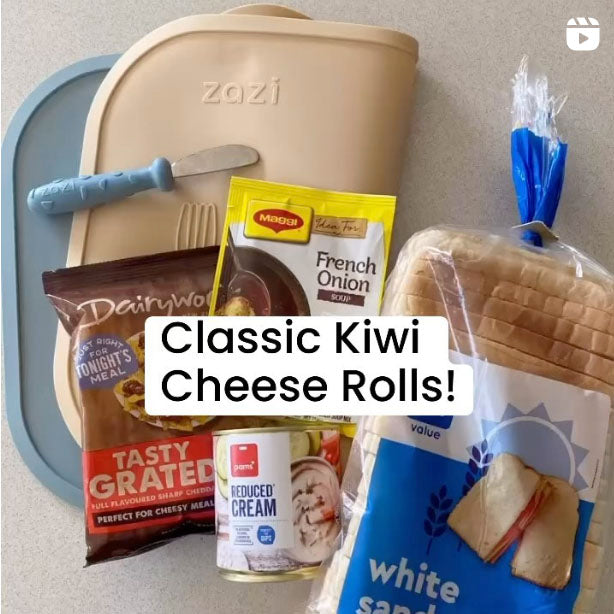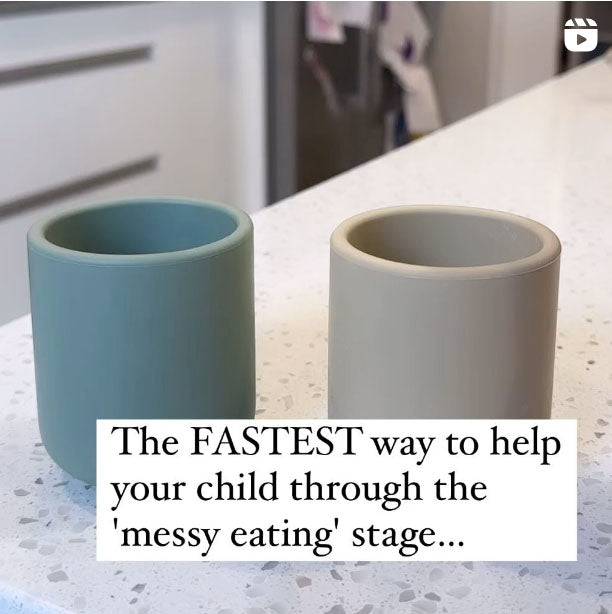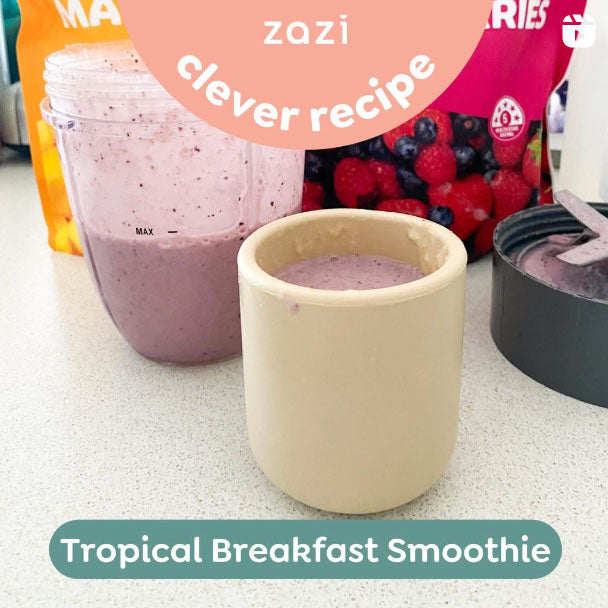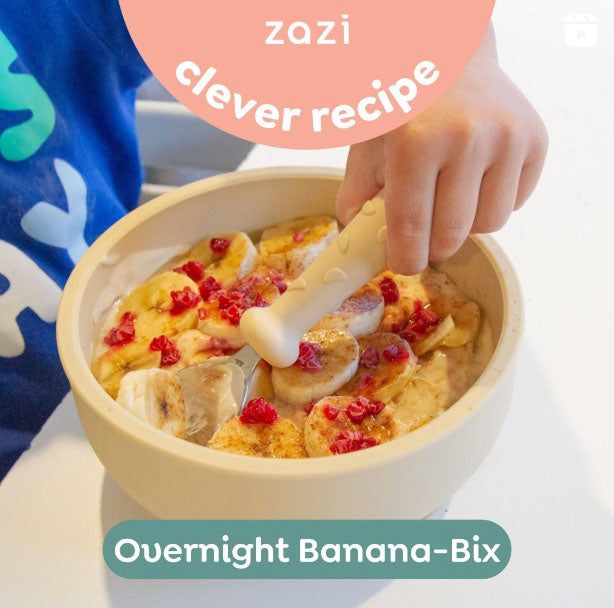Starting Solids: Baby Feeding Tips from a Speech Therapist
It feels like forever since I started solids with August and Etta. But given there are lots of parents in my community who are just starting their own feeding journey with their little one(s), I thought it was time to revisit some of my go-to tips from both my experience as a mam and as a speech and language therapist. My focus is always on supporting oral development and building healthy feeding habits right from the start.
Setting the Scene – Highchair Support
Your baby needs to be stable and comfortable before they even take their first bite. The ideal setup is hips, knees and feet all at 90 degrees, with solid foot support. If you’ve ever sat on a bar stool without a footrest, you know how hard it is to stay still. That’s exactly what it feels like for a baby if they have dangling legs - they just don't have the muscle support to keep themself upright while also using their arms.
But even the most perfectly adjusted highchair can’t replace developmental readiness. Core strength matters. Before solids, babies should be able to sit upright on their own without slumping or toppling. Unless you’ve been advised otherwise by a health professional, wait until your baby shows signs that their body is ready.
Readiness signs to look out for:
· Sitting unassisted with minimal wobbling
· Holding their head steady without support
· Bringing toys or hands to their mouth with control
· Showing interest in your food at mealtimes
You can check out my blog specifically about choosing the right high chair here
First Bites
I started with a mix of puree feeding and baby-led weaning. Purees helped me to see how my baby managed food in their mouth, while finger foods gave them additional chance to practise self-feeding and also explore the texture and temperature of new foods - eating is a big sensory experience.
Etta’s first food was kumara. I roasted it with a drizzle of olive oil, then mashed it with frozen breastmilk for a familiar taste. You can use fresh breastmilk or formula too. Leftovers keep easily in the fridge for two days (of course, I used the Clever Bowl to store them).
Speech therapist tip
If your baby can bring toys to their mouth during play, they can likely bring a spoon to their mouth at mealtimes. I designed our Clever Spoons to be the perfect size for little hands and mouths - a parent’s only job is to load the food onto the spoon. There's a great technique called spoon switching - basically while the baby is eating off one spoon, the parent loads another spoon ready as the next bite. The empty spoon is then refilled while the full one is eaten off. Give it a try!
If you’re also doing some parent-led spoon feeding, lead the spoon towards your baby and pause. Hold it close enough so they can lean forward and take it themselves. Resist the urge to pop it straight in when their mouth opens. That pressure can create stress and even aversion. Feeding should feel safe and responsive, never forced.
Making Mealtimes Successful
Here are some key principles to support mealtime success, no matter your approach:
1. Eat together. Being at the table with your child isn’t just for safety, it shows them exactly how we eat, try new foods, and use utensils.
2. Give them chances to feed themselves. The hand-to-mouth milestone develops around six months. They need plenty of practice to build skill and confidence.
3. Embrace the mess. Exploring textures, tastes, and temperatures is vital for brain development. Avoid wiping their face with the spoon or a cloth mid-meal. Let them feel it. Wipe once the meal is over. A messy mat under the highchair helps keep it manageable.
4. Keep the environment distraction-free. Turn off the TV, put music on pause, and avoid toys at the table. Babies shouldn’t need to be distracted to eat - mealtimes should be about eating. It’s safer and supports better focus.
6. Remember milk is still their main source of nutrition. Solids are complementary in the first year. Think of them as practice and exposure, not the main meal.
7. Every child is different. Some pick up solids quickly, others really take their time. Both are normal. Try not to compare your child to others' (I know it's hard not to!)
8. Patience and repeated exposure matter more than speed. It can take tens of attempts before a child is interested in a new food. I try to have the mindset that all I need to do is offer the food, the choice to eat it (or play with it!) is theirs. It takes so much pressure off!
You can check out my blog about spoon feeding and setting yourself up for success by clicking here
Why I Designed Our Mealtime Essentials Range
I’m so passionate about mealtimes that I designed products to support everything I’ve talked about here. Our Mealtime Essentials range ticks all my boxes as both a parent and a therapist. The range even won the 2024 Global Award for Feeding System Product of the Year, which we’re very proud of. Designed by a speech therapist, tested by my two kids… who now are eating me into bankrupcy.
Products our Mealtime Essentials Range:
- Clever Spoons - the perfect first spoon
- Clever Cutlery - the right size for little hands
- Clever Mat The mat like no other
- Clever Plate - No sections, just like an adult plate
- Clever Bowl - Suction bowl with a water tight lid
- Clever Cup - Because your baby can drink from an open cup from 6months!
- Clever Bib - For a less messy mealtime experience


